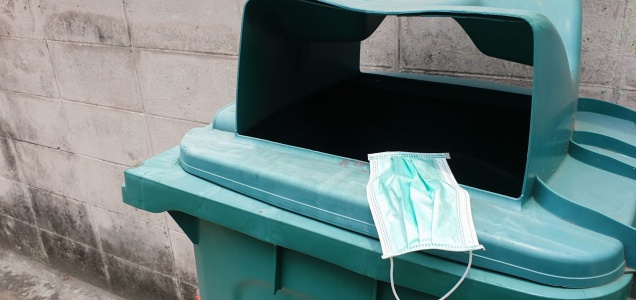Abiding by the decisions and measures taken by the government to reduce the spread of the new Coronavirus COVID-19, and in order to ensure the safety of workers in waste management facilities and preserve public health, The Solid Waste Management Program at the Office of the Minister of State for Administrative Reform established strict infection prevention measures. In this respect, all operators must implement good hygiene and infection control practices including:
- Enforce frequent and thorough hand washing. Workers must be provided with access to running water and adequate amounts of soap. Hand washing time must take at least 30 seconds before rinsing. Alcohol of at least 70% can also be used to further sterilize hands.
- All workers must wash their hands upon arrival to work and prior to entering the facility. Regular hand washing must be encourages especially if they appear to be soiled. All workers must wash again once leaving the facility.
- Workers must be provided with adequate PPE such as clean gloves and face masks that must be worn at all times.
- It is recommended that pierce resistant gloves are used by worker to protect them from sharp objects.
- All reusable gloves must be washed with soap and sterilized with alcohol or detergent before and after use.
- Anything that comes into contact with hands such as stair rails, mechanical equipment, surfaces, vehicles, or door handles, must be sanitized either with soap, alcohol, or other disinfectant at the beginning and the end of the day.
- Used disposable masks and gloves should all be collected in specially designated bags. Once full, the bag must be tied and placed inside another plastic bag and tied. The bag must then be disposed of in a sanitary landfill.
- All workers must be provided with training on the need to wear PPEs, how to put them on, and how to take it off correctly, cleaning reusable equipment, and safe disposal of used disposable PPEs.
- Prompt identification and isolation of potentially infectious individuals is critical in protecting other workers.
- Workers’ health must be observed very carefully for any workers showing any symptoms. If a worker is suspected of having the disease symptoms, the individual must be isolated immediately, and provided with a facemask to prevent spread of respiratory secretions. Health authorities must be contacted immediately to inform them of the case.
- Workers should be encouraged to self-monitor for signs of symptoms or the disease if they suspect possible exposure.
- Any workers that are sick, whether they are showing COVID-19 symptoms or not, must be encouraged to stay at home.
- All workers must respect the social distancing rules and must maintain a distance of at least 1.5 -2m away from each other at all times.
- Operators may consider alternating days or extra shifts that reduces the total number of employees in a facility at a given time, allowing them to maintain a distance from one another while maintaining a full onsite workweek.
- It is recommended that operators acquire a digital thermometer Gun that is well calibrated to be used frequently to detect fever and screen all workers entering and leaving the facility.
- While wearing PPE, touching faces can spread viruses and therefore it is highly recommended to remind all works and personnel to avoid touching faces as much as possible.
Finally, Municipalities and/or Unions of Municipalities are responsible for assessing the situation in their relevant facilities and should take all the necessary measures to prevent the spread of the COVID-19 virus, even if that means closing down the facility temporarily.

